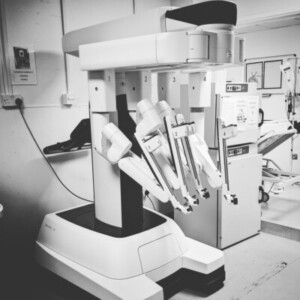What You Need To Know About Gynaecological Cancer
 1. There are five types of Gynaecological Cancer
1. There are five types of Gynaecological Cancer
- Vulval Cancer is a rare type of cancer that affects the vulva, the outside parts of the female genitals.
- Ovarian cancer is a loosely used term that encompasses gynaecological cancer arising from the ovaries, tubes and peritoneum.
- Endometrial cancer is a type of uterine cancer that starts in the inner lining of the uterus. This lining is called the endometrium.
- Cervical cancer is cancer in the cervix, the opening of the womb from the vagina.
- Vaginal cancer most commonly occurs in the cells that line the surface of your vagina
2. The symptoms of gynaecological cancers often include bleeding, pain and irregular changes:

Bleeding: Postmenopausal bleeding, heavier periods than normal before menopause, vaginal bleeding between periods, bleeding/pain after sexual intercourse and a watery or blood-stained discharge.
Pain: Itching, burning or soreness of the vulva that persists, a burning sensation on passing urine, persistent abdominal and pelvic pain and difficulty in eating and feeling nauseous or full quickly.
Abnormal changes: A smelly discharge, a lump or swelling over the vulva, a mole that changes shape or colour, increased abdominal girth and persistent bloating and an altered bowel habit not explained by diet or lifestyle.
 3. Cervical Cancer is a preventable disease and early diagnosis can save your life
3. Cervical Cancer is a preventable disease and early diagnosis can save your life
The HPV virus causes the majority of Cervical Cancers. Cervical screening (the Smear Test) is a test for HPV that helps prevent Cervical Cancer. If we can detect precancerous cells early through the smear test, we can prevent 75% of the cancer from developing. It is estimated that screening saves around 5,000 lives per year.
 4. GRACE is funding a wide range of research projects
4. GRACE is funding a wide range of research projects
MIRRORS is a feasibility study exploring the role of Robotic interval debulking surgery for ovarian cancer. The study is seeking to determine whether, in selected patients, robotic surgery offers improved quality of life and recovery with equivalent overall and progression-free survival.
The role of HOX genes over expression in ovarian cancer study is focused on trying to understand why some women with advanced ovarian cancer respond to further treatment and some women don’t. To read more about our research visit: https://grace-charity.org.uk/news-research/
5. Our incredible GRACE Women have been generous enough to share their gynaecological cancer stories.

“My life stood still on the 25th of March. Exactly 6 weeks after my Lletz and two days after the lockdown was put in place. The last place I wanted to be was in hospital so it was agreed that I would have a telephone consultation with my consultant. I was told over the phone I had cancer.” – Read Rebecca’s Cervical Cancer Story
“Please check yourself on a regular basis, and if anything changes get over your embarrassment and please go to a doctor.” – Listen to Bridget’s Story
“The moral of this story is that if you feel like something isn’t right, get it checked out.” – Read Cathy’s Endometrial Cancer Story
“There are days that I have dark feelings and worry about the future but having the support of charities such as GRACE really does help, it makes a huge difference.” – Listen to Jo-Ann’s Ovarian Cancer Story

Leave A Comment